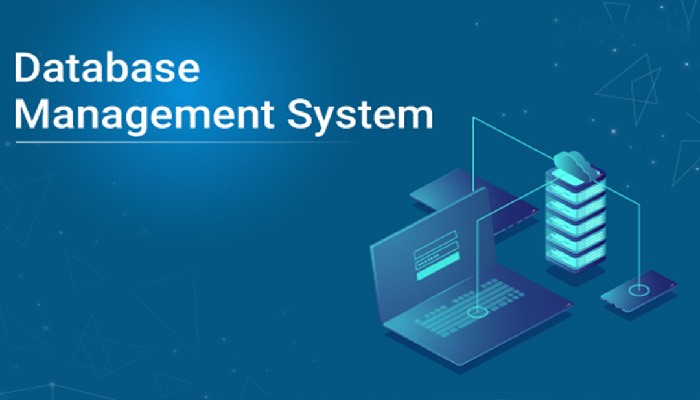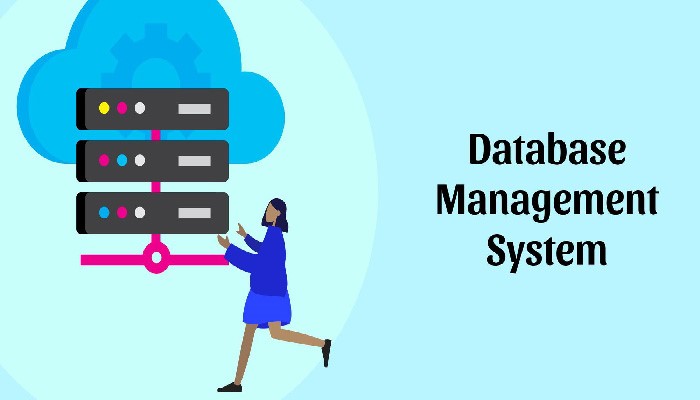Navigating the World of Database Management Systems
Welcome to the digital realm of data dynamism! In today’s fast-paced business landscape, managing information effectively is key to staying ahead. At the heart of this operation lies Database Management Systems (DBMS), the unsung heroes that organize and optimize vast pools of data. Whether you’re a tech enthusiast or a curious entrepreneur, join us on a journey through the world of DBMS as we unravel its types, features, best practices, and future trends. Let’s dive in and decode the language of databases together!

Types of DBMS: Relational, No SQL, and Object-Oriented
When it comes to Database Management Systems (DBMS), understanding the different types can be crucial for businesses looking to optimize their data storage and retrieval processes.
Relational DBMS is the traditional model that uses tables to store data in rows and columns, making it easy to establish relationships between datasets. No SQL databases, on the other hand, offer flexibility by allowing unstructured and semi-structured data storage without a fixed schema.
Object-Oriented DBMS treats data as objects with attributes and methods, providing a more intuitive way of managing complex information. Each type has its strengths and weaknesses, so choosing the right one depend on your specific business needs.
Whether you opt for relational efficiency or No SQL flexibility, understanding these distinctions can help you make informed decisions on which type of DBMS aligns best with your organization’s objectives.
Key Features and Functionality of DBMS
Database Management Systems (DBMS) play a crucial role in organizing and managing data efficiently within organizations. One key feature of DBMS is its ability to store, retrieve, and update large volumes of data securely. This ensures that businesses can access the information they need in a timely manner.
Another important functionality of DBMS is its support for multiple users to access the database simultaneously without compromising data integrity. This concurrency control feature helps prevent conflicts when several users are trying to modify the same data at once.
Moreover, DBMS offers robust security features such as user authentication, encryption, and access control mechanisms. These ensure that sensitive business information remains protected from unauthorized access or tampering.
Additionally, DBMS provides scalability options allowing businesses to easily expand their databases as their data storage requirements grow over time. This flexibility is essential for accommodating changing business needs and ensuring smooth operations.
In essence, the key features and functionalities of a well-designed DBMS contribute significantly to enhancing data management practices within organizations while promoting efficiency and security across all levels of operation.
Popular DBMS Software in the Market
When it comes to popular DBMS software in the market, there are several options that cater to different business needs and preferences. One of the most widely used is MySQL, known for its reliability and ease of use in managing relational databases. Posture SQL is another favorite among developers for its advanced features and robust performance.
For those looking for a flexible and scalable solution, Mongo DB offers a No SQL database that allows for efficient handling of unstructured data. Microsoft SQL Server is preferred by many enterprises due to its integration with other Microsoft products and strong security features.
Oracle Database remains a top choice for large organizations requiring high levels of data processing power and stability. Each of these DBMS software has its strengths, making it essential to evaluate your specific requirements before selecting the best fit for your business needs.
Factors to Consider When Choosing a DBMS for Your Business
When selecting a Database Management System (DBMS) for your business, several factors come into play. Consider the type of data your business deals with – structured or unstructured. This will help determine whether a relational, No SQL, or object-oriented DBMS is the right fit.
Scalability is another crucial factor to think about. Ensure that the chosen DBMS can scale with your business as it grows without compromising performance. Compatibility with existing systems and applications is also key to seamless integration and data flow within your organization.
Security features should not be overlooked when making a decision. Look for robust security measures such as encryption, access controls, and auditing capabilities to safeguard sensitive data from breaches and unauthorized access.
Moreover, consider the cost implications of implementing and maintaining the chosen DBMS over time. Factor in licensing fees, support costs, and potential training requirements for staff members to effectively manage the system.
Assess the level of technical expertise required to operate the DBMS efficiently within your organization. Choose a system that aligns with your team’s skill set or be prepared to invest in training programs to maximize its potential impact on your business operations.
Best Practices for Managing and Maintaining a DBMS
When it comes to managing and maintaining a Database Management System (DBMS), there are several best practices that can help ensure optimal performance and data integrity. Regular backups of the database are essential to prevent data loss in case of system failures or errors. Monitoring the system’s performance metrics regularly can help identify potential issues before they escalate.
Implementing security measures such as encryption, access controls, and regular security audits is crucial to protect sensitive data from unauthorized access or breaches. Regularly updating the DBMS software with patches and upgrades is vital to address any vulnerability and improve functionality.
Optimizing queries and indexing can significantly enhance the system’s performance by reducing response times and improving overall efficiency. Additionally, implementing proper data normalization techniques can help eliminate redundancy and maintain data consistency across tables.
Regularly reviewing and optimizing database configurations based on usage patterns can also contribute to better performance. Conducting routine maintenance tasks such as defragmentation, vacuuming, and purging old data can help optimize storage space utilization.
By following these best practices for managing and maintaining your DBMS, you can ensure smooth operations, high availability, and reliable data management for your business needs.
Future Trends in DBMS Technology
As technology continues to evolve at a rapid pace, the future of Database Management Systems (DBMS) looks promising. One key trend on the horizon is the rise of cloud-based DBMS solutions, offering scalability and flexibility for businesses of all sizes.
Additionally, there is a growing focus on integrating artificial intelligence and machine learning capabilities into DBMS, enabling more efficient data processing and analysis. This will empower organizations to extract valuable insights from their data with greater ease.
Another emerging trend is the increasing adoption of block chain technology in DBMS, enhancing security and trust in data transactions. By leveraging distributed ledger systems, businesses can ensure data integrity and transparency within their databases.
Furthermore, we can expect continued advancements in real-time analytics and IoT integration within DBMS, enabling companies to make faster decisions based on up-to-date information from connected devices. These trends indicate an exciting future where DBMS will play a pivotal role in driving innovation and competitiveness across industries.
Conclusion: The Importance of Data Management for Businesses
In today’s data-driven world, effective database management systems are crucial for businesses to thrive. From organizing and storing data to ensuring its security and accessibility, a robust DBMS plays a fundamental role in the operations of companies across various industries.
By implementing the right DBMS for your business needs and staying abreast of emerging trends in technology, you can streamline processes, enhance decision-making capabilities, improve customer experiences, and drive innovation within your organization.
Remember, data is at the heart of every successful business strategy. So, investing in top-notch data management practices through a reliable DBMS will not only optimize your operations but also set you on the path to sustained growth and success.



